Interactive Environments Minor – “IDE Airport”
How can we use interactive environment to spark lateral thinking in transdisciplinary design?
Last week, students from the Interactive Environments Minor staged a workshop in the main hall at IDE, turning a section of it into the “IDE Airport”. The workshop was organised in collaboration with Philip Beesley Studio, David Abbink, Dave Murray Rust and Maria Luce Lupetti, inspired by the recent FRAIM project around future of work in baggage handling at Schiphol.
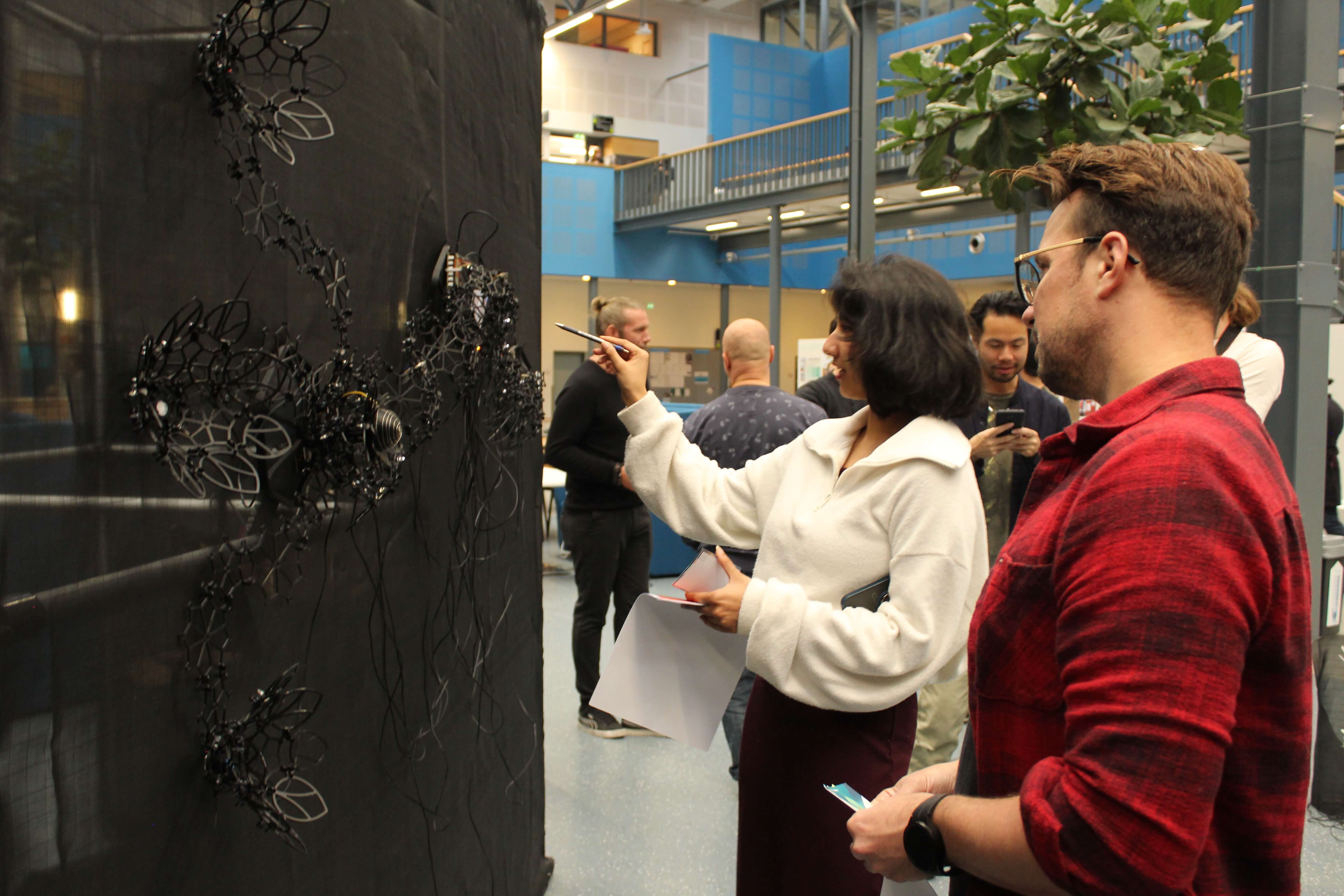
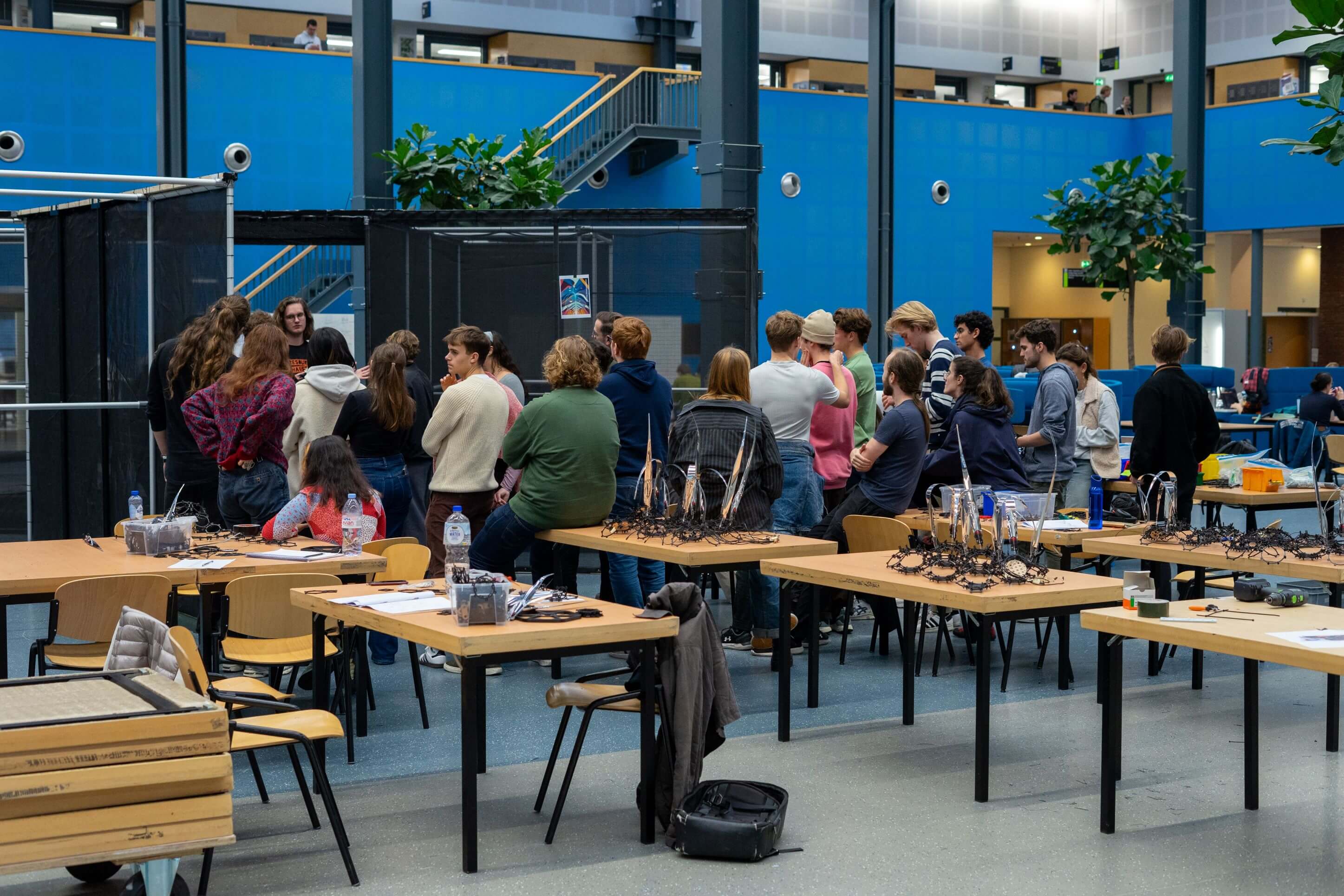
The workshop began on 30 October at the TU Delft Science Centre, then moved over to IDE. By Friday 3 November, professionals from Schiphol were able to take part in the workshop and experience what the students had created.
The mission of the students was to answer the following question: How can we use interactive environment to spark lateral thinking in transdisciplinary design?
During the workshop, they led stakeholders on a speculative journey to reimagine robotic possibilities. They confronted them with a student-built immersive interactive environment, based on an ecology of static robots from Philip Beesely’s studio, programmed with behaviours inspired by conversations about baggage handling at Schiphol. The hope is that this initial conservation will spark discussion, which will allow the Interactive Environments Minor students to create new behaviours and redesign the ecosystem based on the shared imaginaries.
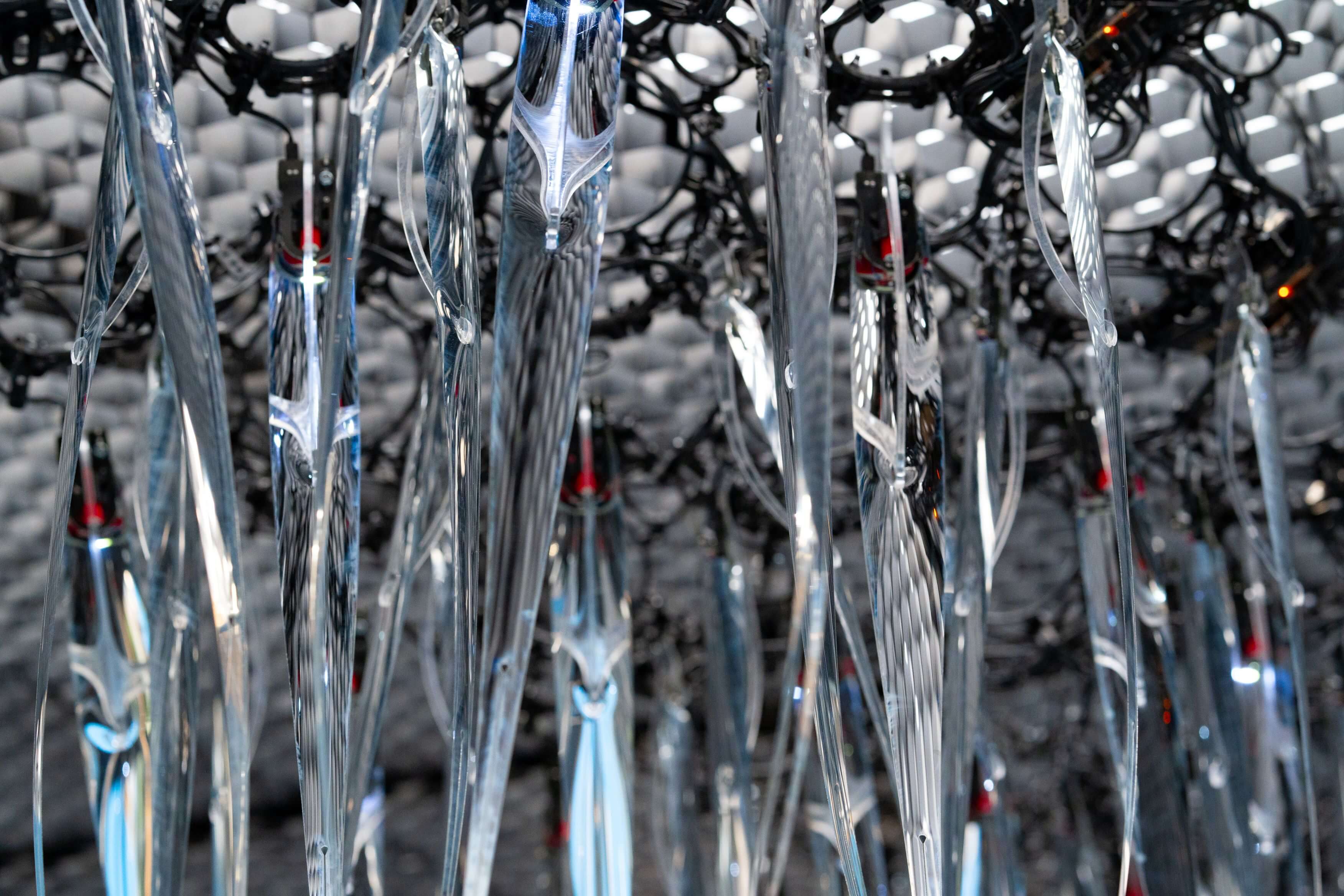
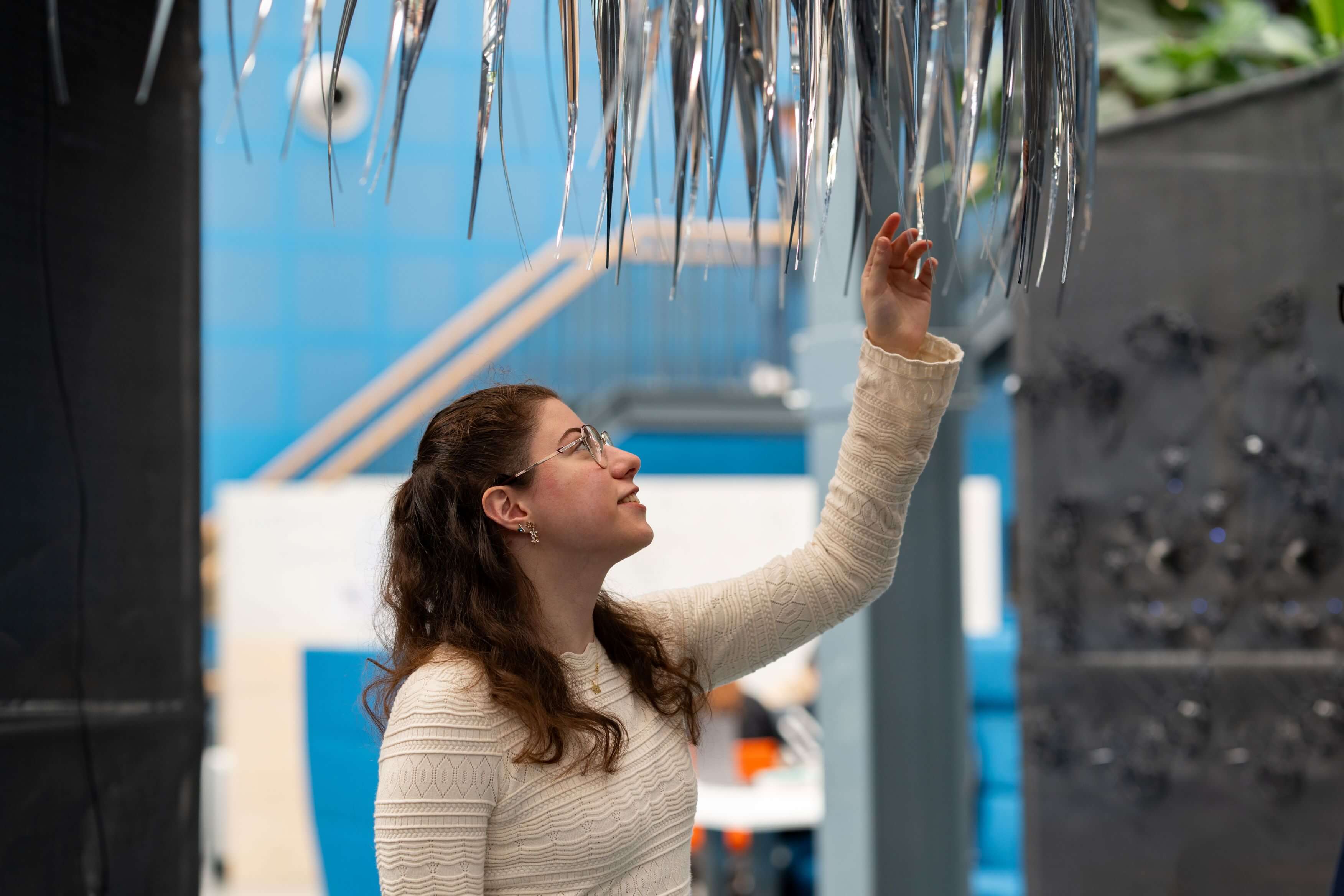
In addition to the goal mentioned above, the students were also tasked with designing additions to the Philip Beesley form-language and technology. This workshop acted as a developmental step towards having an open system installed in the TU Delft Science Centre sometime in the coming years.
What’s more, in a few years’ time these types of interactive environments will be used across the TU Delft campus as a resource/facility for research and education. The minor, in essence, is prototyping how TU Delft staff can install and employ this type of technology. Course coordinator, Aadjan van der Helm, hopes that from the workshop they will be able to create a toolkit that can be used to facilitate experiments elsewhere on campus.
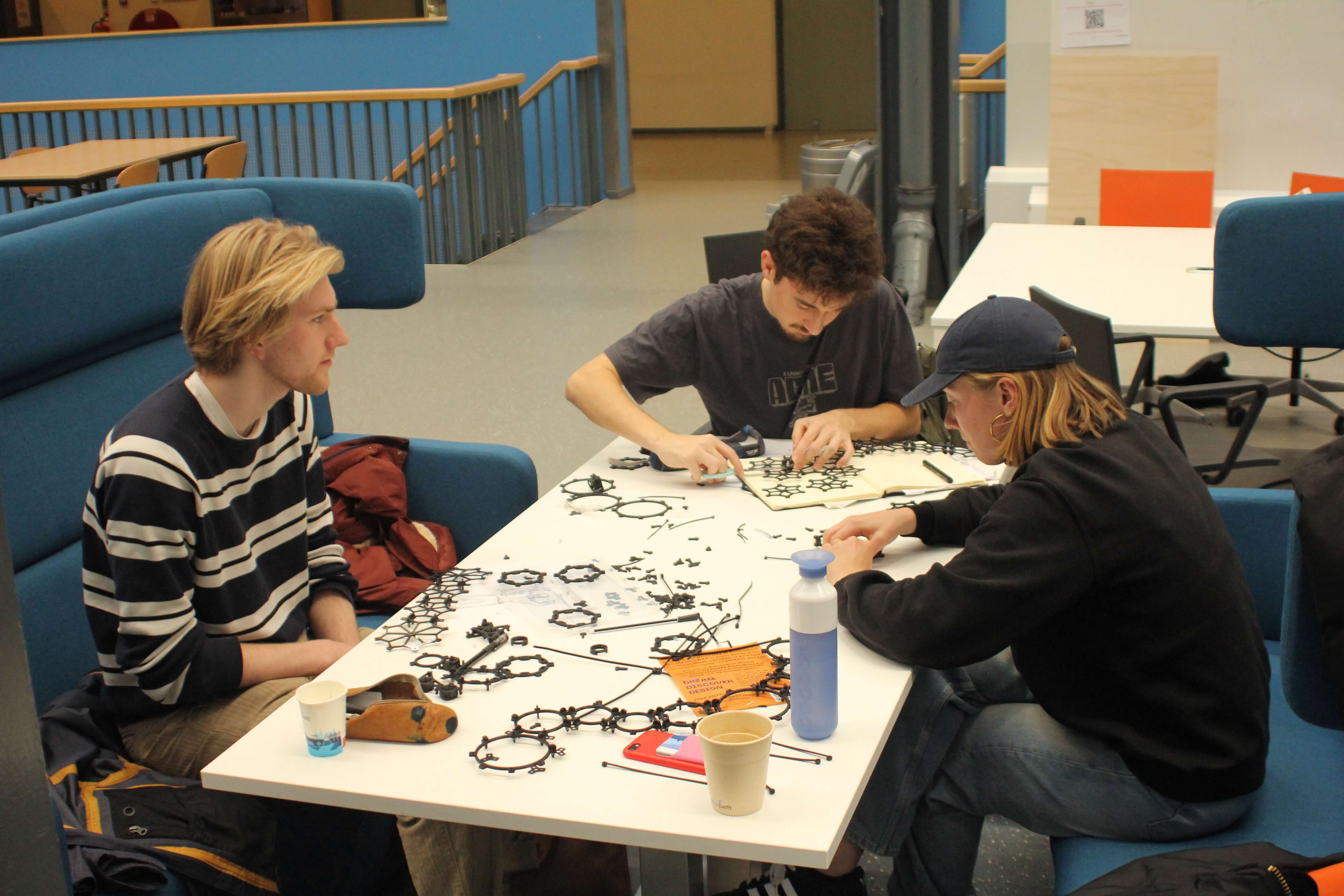
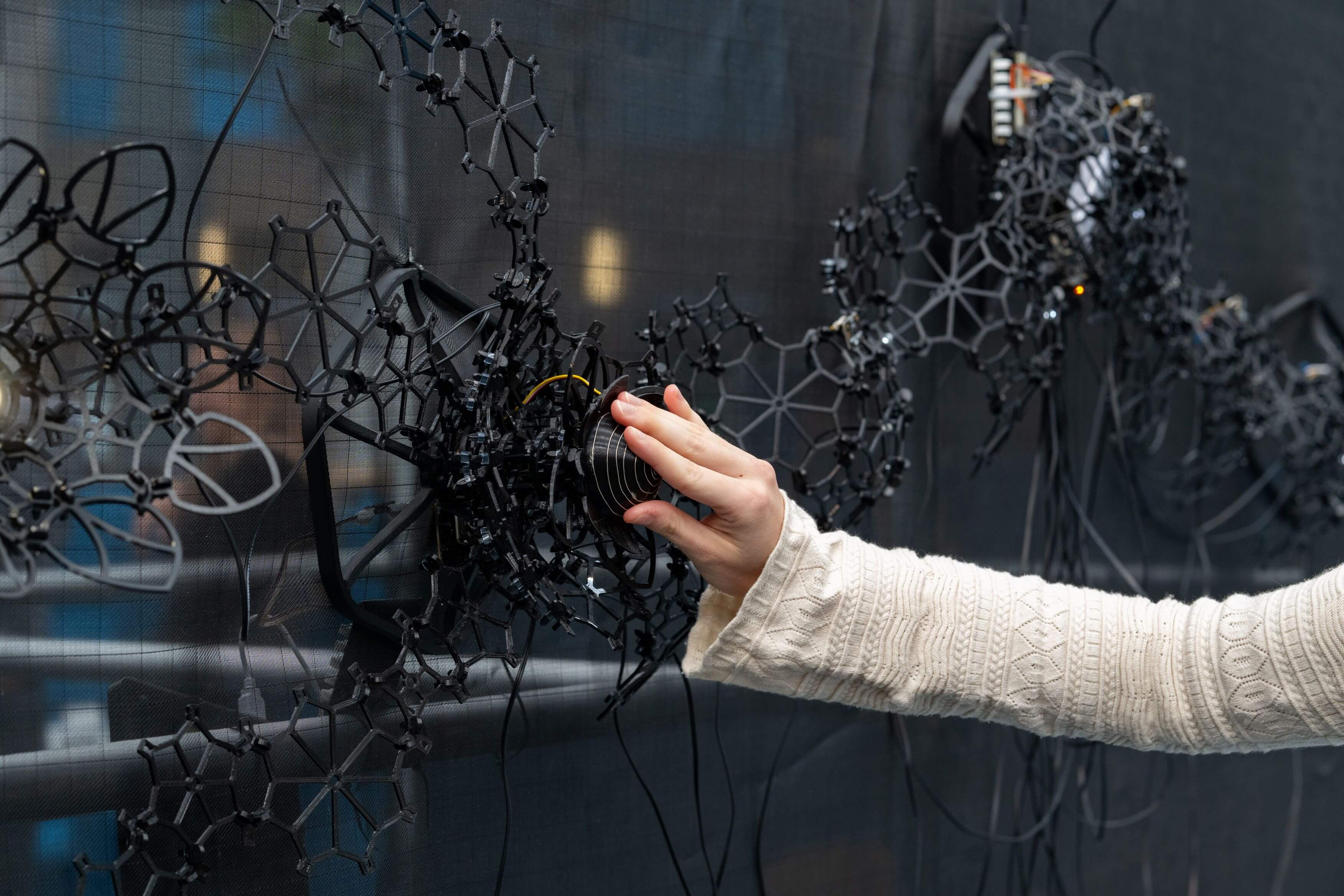
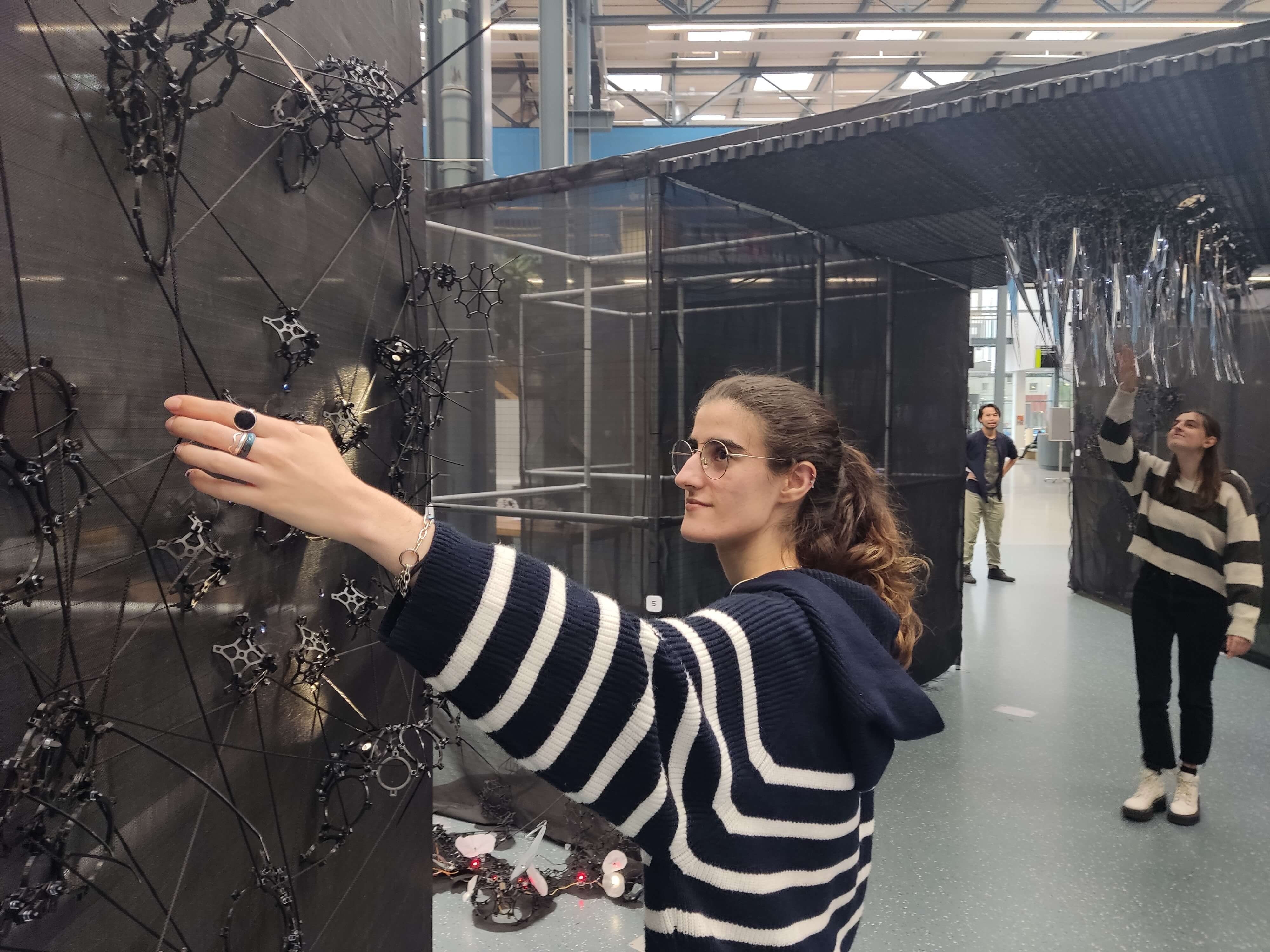
The Teams Behind the Workshop
Students: Adriaan Elzas, Beatriz Monteiro (Bia), Birte Hartmann, Carlijn Willems, Claudia Daudén Llodrá, Dauphine van Halewijn, David van Beelen, David Zaragozá Sabater, Diego Viero, Dingyue Zhang, Don Zwartveld, Eva Mattijsen, Ina Sun Bøe, Iris Petre, Izzy Zalat, Jan Eikevold, Justin Jo, Kate Nam, Lachie Wilson, Luc Koster, Maarten Strebe, Marijn van Geest, María Espina García, Mats Meerveld, Maxine Jo Claar, Merel Franke, Michael Werst, Nienke Mullink, Olivija Dijoka, Radhika Sehgal, Robin Rietdijk, Rubin Philippart, Ruoqian Zhao, Álvaro Sempere Caro, Esther Park
Interactive Environments Minor teaching staff: Justin Oosterbaan, Jeroen Heijmans, Shraddha Bollapragada, Sander Aalbers, Aadjan van der Helm, Chris Kievid, Wim Schermer, Govert Flint, Martin Havranek, Tomasz Jaskiewicz, Sietske Klooster
Living Architecture Group: Philip Beesley, Matt Gorbet, Adrian Chiu
TU Delft Science Centre: Michael van der Meer, Teun Verkerk
FRAIM research and innovation team: Alessandro Ianniello, Dave Murray Rust, David Abbink, Deborah Foster, Maria Luce Lupetti, Lily Fithaut, Tom Coppelmans, Stijn Verlaak, Halithan Cetin, Camille Sallaberry, Eva Verhoef
Schiphol: Zahra Merchant, Christopher Roos